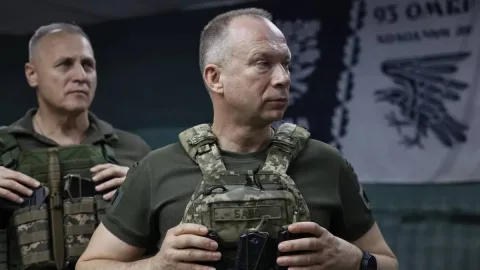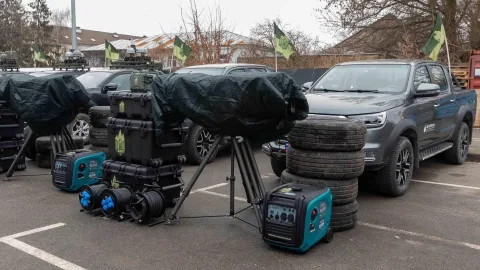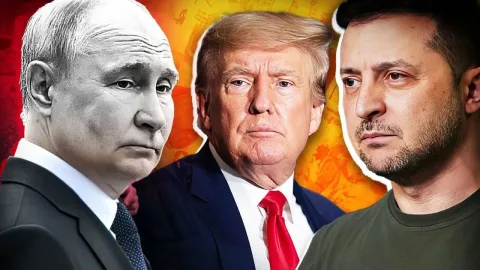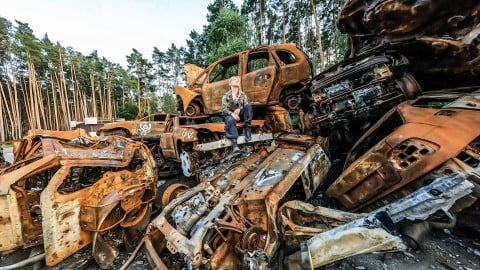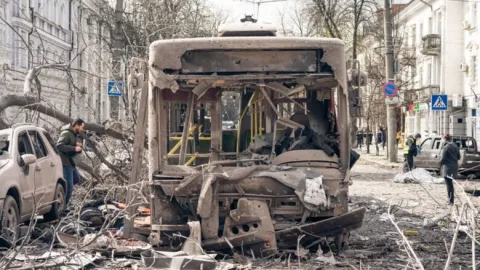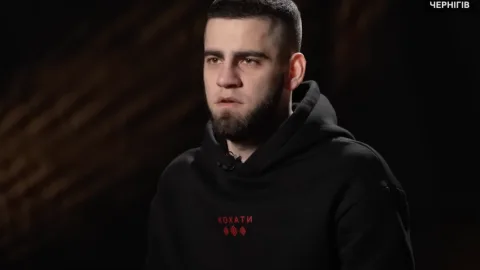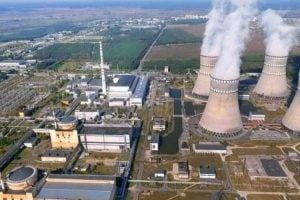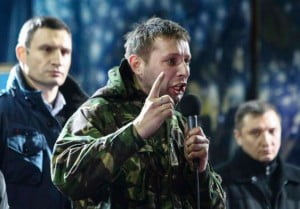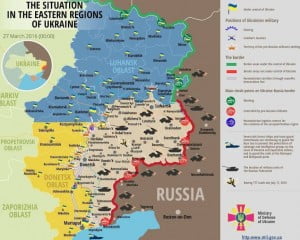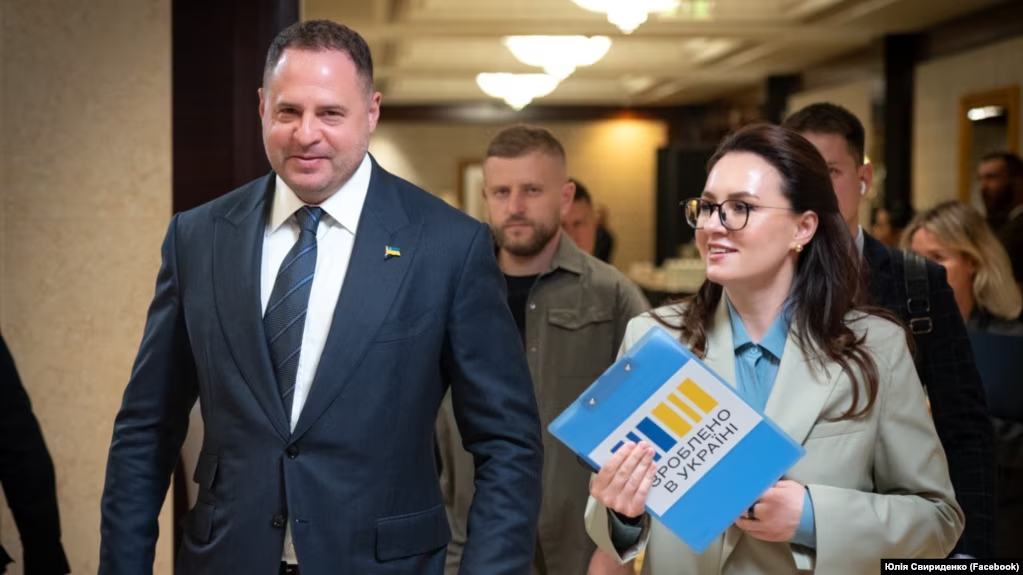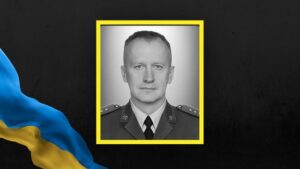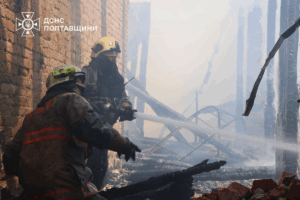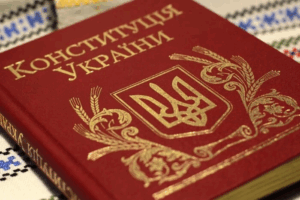The Ukrainian leadership maintains that the Minsk Accords are the only viable alternative for Ukraine. This is deceit, according to Maidan of foreign affairs national security expert, Oleksiy Kuropiatnyk.
Kuropiatnyk claims that fighting the war is the single best response to the armed aggression from Russia. The outcome will be victory or defeat, states Oleksiy Kuropiatnykin an interview conducted by Gazeta.ua. EMPR presents highlights of the mentioned interview.
Can the Minsk Accords be fully implemented?
In an unresolved conflict between two nations war is the last resort. The conflict cannot last forever. Peace talks do not change the situation; they merely reinforce the successes or the failures of the military.
The negotiations around the Minsk Accords are offered by Ukraine’s leadership as the only alternative to solving the conflict. This is a false premise. Proclaiming war is the single best response to the armed aggression from Russia. The result will be victory or defeat. Once the point is reached, at which the stronger side realizes that there are no more advantages to be gained and the weaker side realizes that it cannot exist within those bounds – at that point a diplomatic solution could work.
The nation has decided to resist while the political elite have decided to quit fighting. A misbalance has been introduced.
The Minsk Accords are a platform for negotiations. The rhetoric around the Accords denies that there is a war. It is a losing position. The Accords have failed to bring peace. Even the ceasefire has been erratic at best.
Is there a danger that the war in Donbas will escalate?
It’s not a danger, it is what is happening. Today [July 19th] the Ukrainian Armed Forces lost seven soldiers. Our ruling politicians do not acknowledge the losses. They insist on calling the war an Anti-Terrorist Operation. The hijacking of a bus, or the blowing up of an airplane calls for an anti-terrorist operation. We have a full-blown war in our country.
Speaker of Parliament AndriyParubiy has stated that destabilization in the country is a real threat.
The Cabinet of Ministers is creating conditions under which the people are increasingly dissatisfied. Thus, it is important to keep watching what our government authorities are doing. If the living standards continue to fall the people will rise up. If not in Kyiv, then certainly in other parts of the country. This would play into the hands of the Russians.
After the overthrow of Yanukovich was the annexation of Crimea inevitable?
An attempt at annexation was inevitable. However, the result could have been different.
The seizure of Crimea had been planned since the Orange Revolution and after the enlargement of NATO and the European Union (Albania and Croatia had joined the alliance in 2009; Croatia was accepted into the EU in 2013). The western boundaries are now closer to Russia. It’s not the military threat that Russia is worried about; it’s the spread of democratic values that concerns them.
Ukraine should have been prepared for the changes the Kremlin would make in its strategy and in the anti-democratic direction Russia would take. Ukraine’s government possessed the necessary instruments to resist Russia’s aggression on the peninsula. Unfortunately, the authorities chose not to resist. Thus, not only Crimea was lost, but the Donbas, as well. Were it not for the volunteers, the losses would have been greater.
Why didn’t the Russian Federation go further?
It was important for the Kremlin to demonstrate to the West and to the Russians that the target of their aggression was not Ukraine but the Kyiv junta – to show that the people of Ukraine did not support the new government. They were hoping that at a minimum the people of Donetsk would stand on the side of Moscow. That did not happen. And that was what saved Odesa and Kharkiv. The Kremlin had plans to broaden their “active measures” to those cities but they lacked the necessary personnel to create the illusion that Ukraine was in the midst of civil discord.
Crimea has been occupied. So what policy should the government implement in regard to an occupied Crimea?
How would a normal state have reacted? Firstly, all citizens loyal to the state of Ukraine should have been evacuated. People are the most valuable asset. Next, make it prohibitively expensive to maintain the peninsula. Crimea is quite isolated. Water and electricity have to be supplied externally. Crimea is a Ukrainian peninsula, a part of Ukraine. For Russia it will not be easy to supply the water and energy.
The government, including the president, are not doing anything about Crimea. In many instances the authorities are opposed to any blockades of Crimea. They want to conduct business there.
Is Russia relying on pensioners, on corrupt leaders and outsiders in Crimea?
Crimea has long been a retirement destination for Soviet military personnel and for special services personnel from Russia. They are anti-Ukrainian and they are actively anti-Ukrainian. They were the ones who turned up to vote at the pseudo-referendum in March, 2014. Russia has a problem, though. Today’s generation of young people are less affected by the neo-Soviet propaganda.
The same is true in Donbas. Let me tell you what I saw: in one of the schools in the occupied zone near Luhansk the separatists organized a “lesson in courage.” The local separatist-militants were invited, as was a local resident, a former Ukrainian soldier. They promised him he would be unharmed. He was an elder, a prominent member of the community. He spoke to the class in Ukrainian, and at the end he proclaimed, “Glory to Ukraine!” The class jumped to their feet and responded, “Glory to the heroes!” The separatists were in shock. The elderly man left the classroom to a round of applause.



